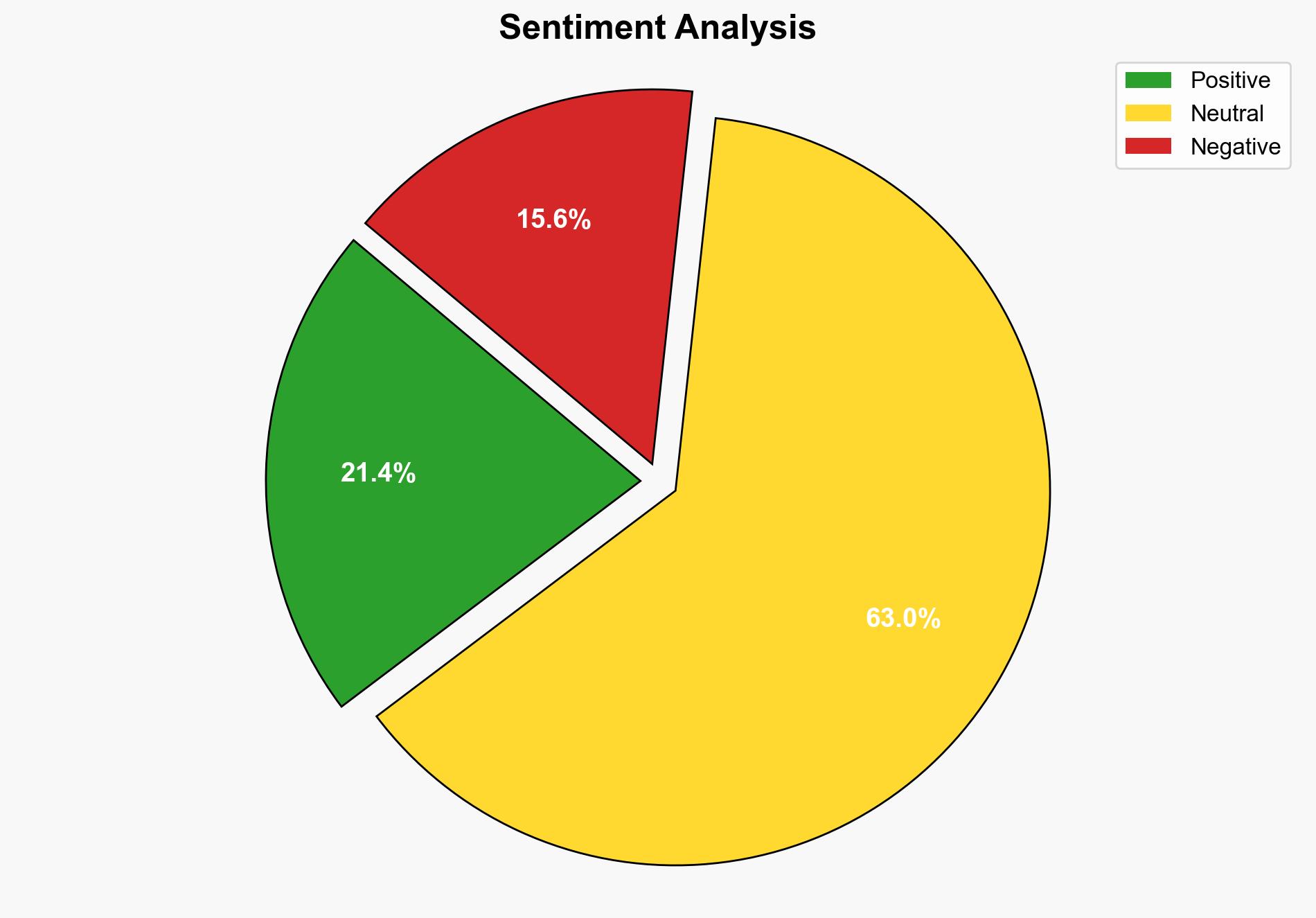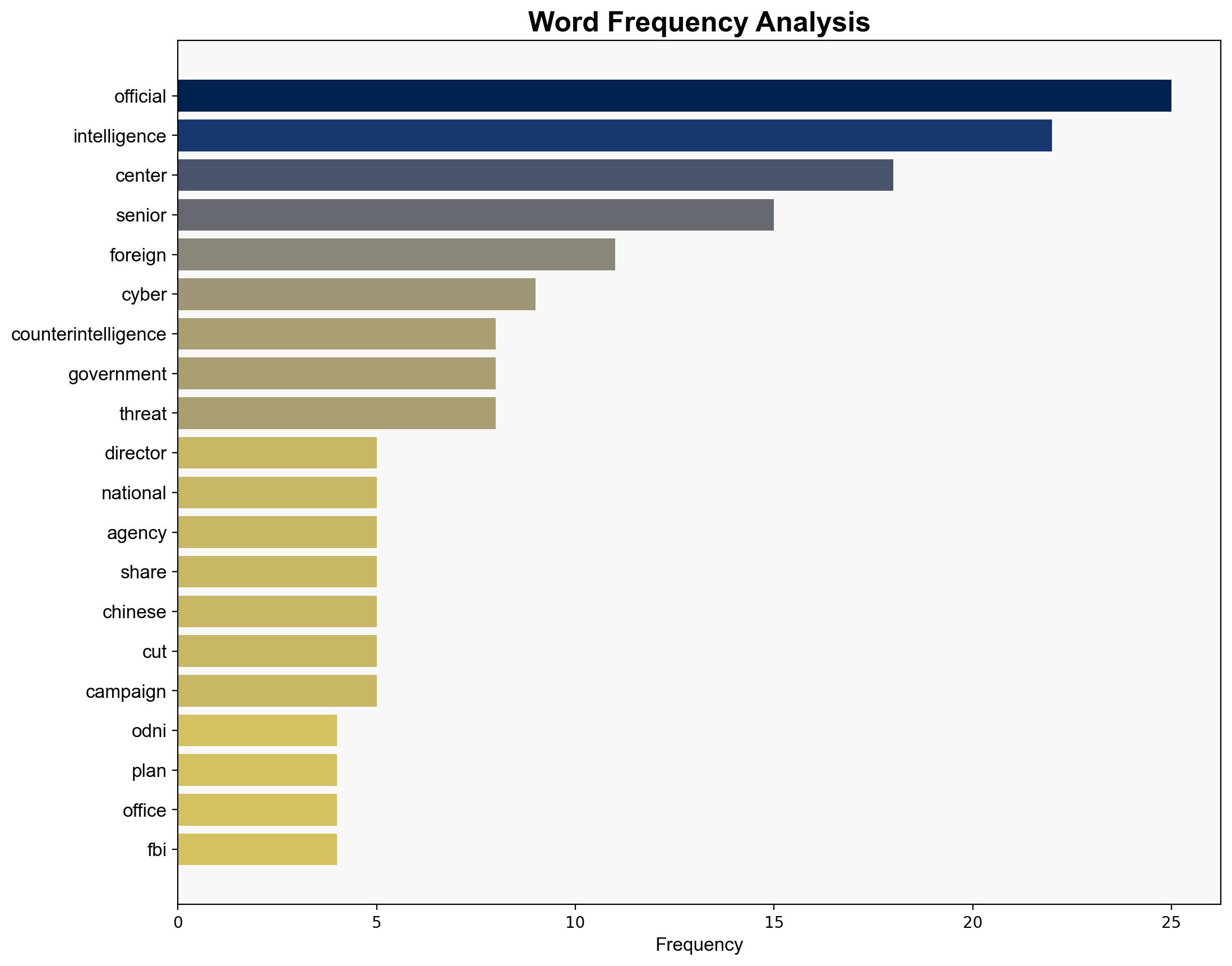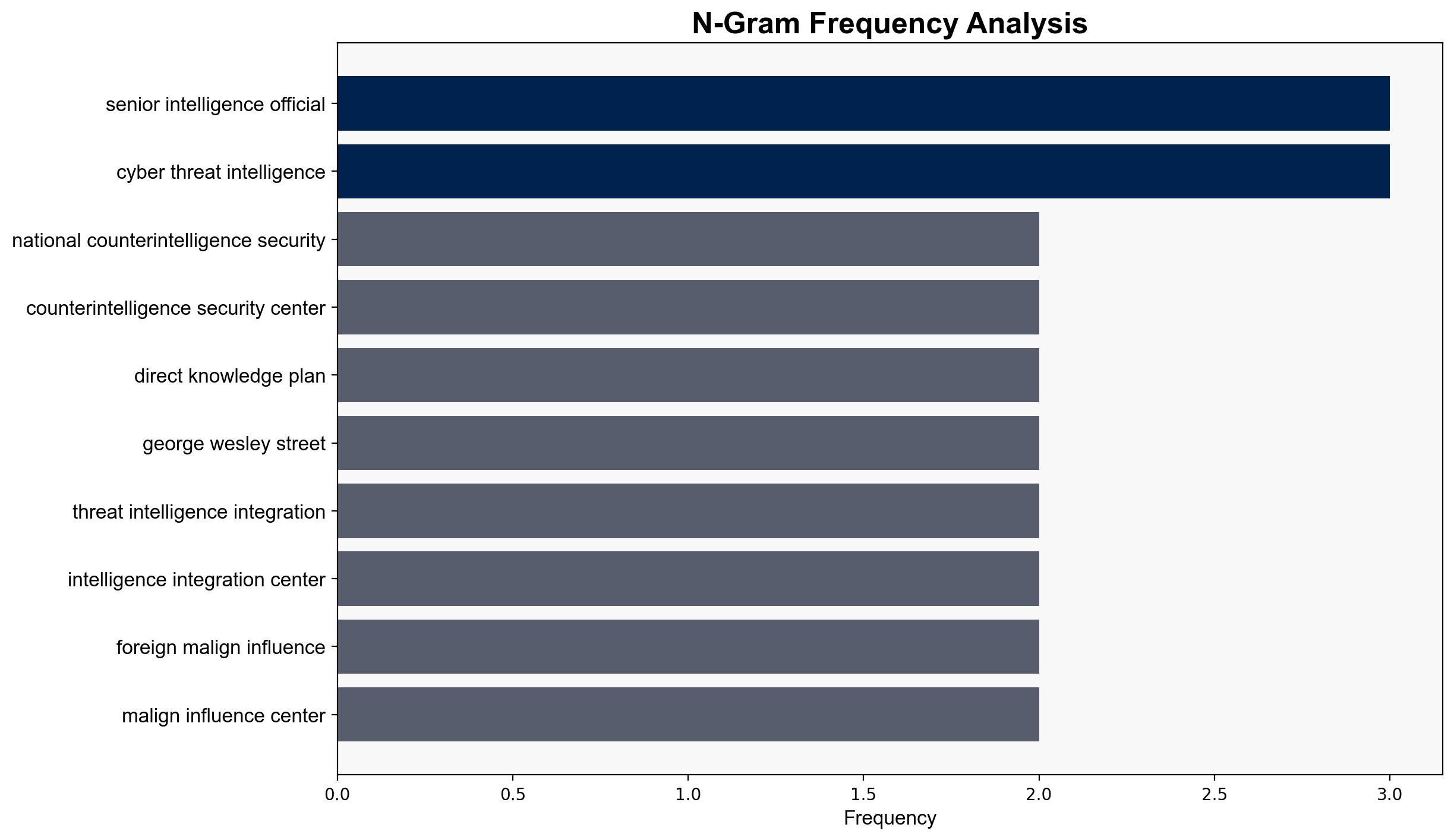ODNI likely to curtail counterintelligence center in latest shake up – Defense One
Published on: 2025-09-11
Intelligence Report: ODNI likely to curtail counterintelligence center in latest shake up – Defense One
1. BLUF (Bottom Line Up Front)
The most supported hypothesis is that the reorganization of the ODNI, including the reduction of the National Counterintelligence and Security Center (NCSC) and National Counterterrorism Center (NCTC), is primarily driven by a strategic shift towards streamlining intelligence operations. This is assessed with moderate confidence. Recommended action includes closely monitoring the impacts of these changes on intelligence sharing and counterintelligence capabilities, and preparing contingency plans to address potential vulnerabilities.
2. Competing Hypotheses
1. **Hypothesis A**: The reorganization is a strategic move to streamline operations and eliminate bureaucratic inefficiencies, ultimately enhancing intelligence sharing and operational effectiveness.
2. **Hypothesis B**: The reorganization is politically motivated, aimed at reducing the influence of intelligence agencies perceived as adversarial by the current administration, potentially compromising national security.
3. Key Assumptions and Red Flags
– **Assumptions for Hypothesis A**: The administration values operational efficiency over agency size; intelligence sharing will improve with fewer bureaucratic barriers.
– **Assumptions for Hypothesis B**: The administration is willing to compromise intelligence capabilities for political reasons; there is a lack of transparency in the decision-making process.
– **Red Flags**: Reports of significant cuts and potential closures without clear strategic rationale; potential bias in sources suggesting political motivations.
4. Implications and Strategic Risks
The reduction of NCSC and NCTC could lead to gaps in counterintelligence and counterterrorism efforts, increasing vulnerability to espionage and terrorist activities. This could have cascading effects on national security, including weakened alliances and compromised intelligence operations. Economically, it may affect industries reliant on robust counterintelligence measures. Geopolitically, adversaries may exploit perceived weaknesses.
5. Recommendations and Outlook
- Conduct a comprehensive impact assessment of the reorganization on intelligence capabilities.
- Develop contingency plans to address potential intelligence gaps.
- Engage with international partners to reassure and maintain intelligence-sharing agreements.
- Scenario Projections:
- Best Case: Streamlined operations lead to enhanced intelligence sharing and effectiveness.
- Worst Case: Significant intelligence gaps result in successful espionage or terrorist activities.
- Most Likely: Short-term disruptions with gradual adaptation and stabilization.
6. Key Individuals and Entities
– George Wesley Street (nominated director of the NCSC)
7. Thematic Tags
national security threats, cybersecurity, counter-terrorism, regional focus





